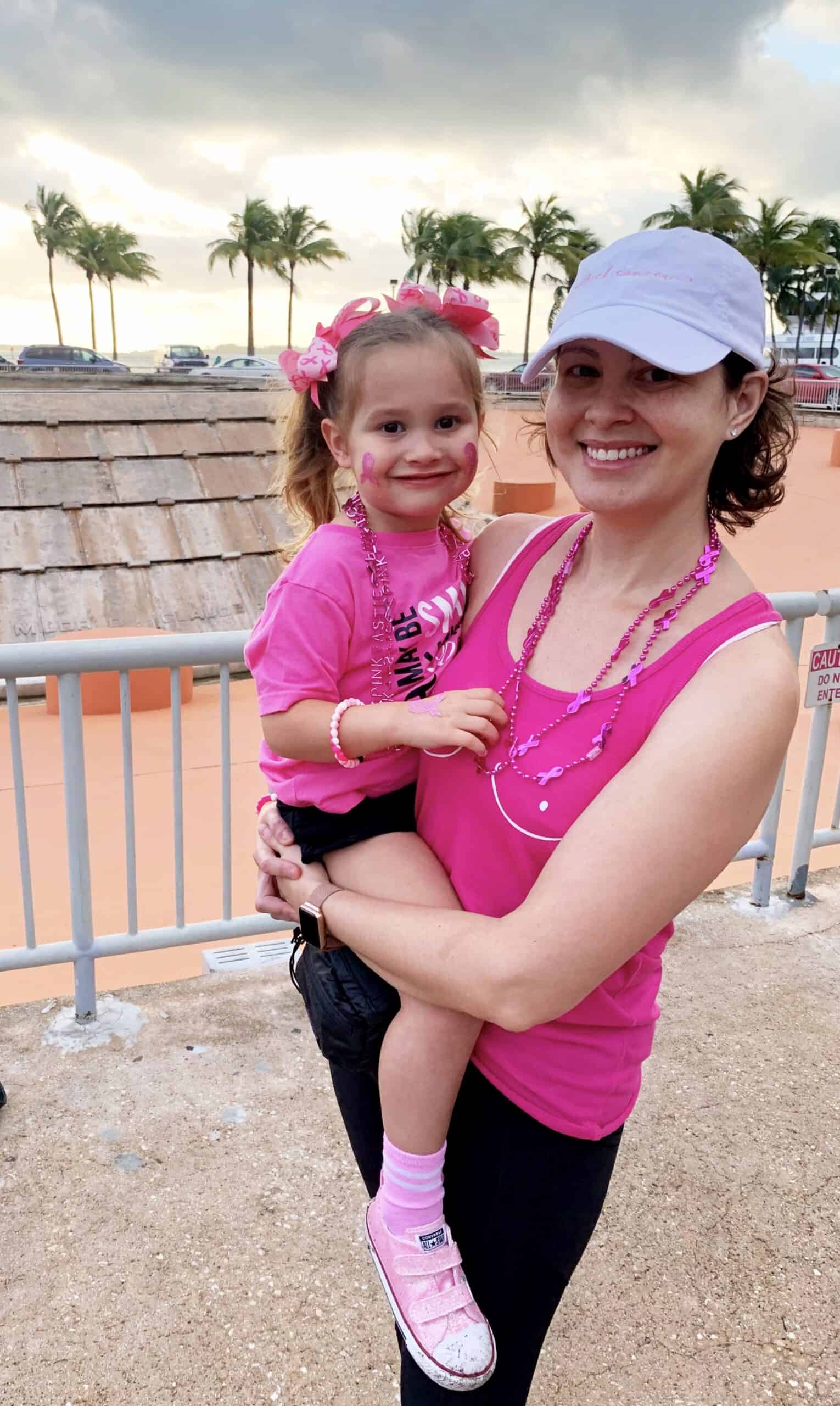
Jessica Lee Palmer was 30 when she was diagnosed with breast cancer. This is her story in her own word.
When I first felt a lump in my breast, I assumed it was a cyst. A few months later, at my annual OBGYN appointment, I mentioned it to my provider. She, too, thought it was probably nothing but said if I wanted to be on the safe side, she’d send a referral for imaging. I had an ultrasound, an ultrasound-guided biopsy and then a mammogram.
I remember the day I learned it was breast cancer like it was yesterday. I was on vacation in Canada, snowshoeing on top of a mountain with a gorgeous view of the city below. I felt on top of the world – until I received an ironically-timed phone call with the results of my biopsy: I had breast cancer. At that moment, every emotion under the sun went through my head. I was scared of what a breast cancer diagnosis meant. I was concerned about how my life would change. I was relieved I’d had the biopsy done. I was in a complete fog.
I had so many emotions all at once and was overwhelmed with new information. How could I have breast cancer at such a young age? What did the diagnosis mean? What was I supposed to do next? I endeavored to answer these questions through my own research; however, I quickly learned how meaningful the support of others was.
I developed a great rapport with my surgical oncologist almost immediately. During my first office visit, she went through my diagnosis in meticulous detail and took the time to draw diagrams of my treatment options. From that point forward, she guided me through my treatment program, which included a bilateral mastectomy, chemotherapy and endocrine therapy.
I have also been fortunate to have the support of friends and family. Many of them have been affected by cancer in their own lives. A few had already experienced the unique challenges of being diagnosed with breast cancer at a young age. They knew exactly how I was feeling when none of it made sense to me yet. They had answers to the questions I didn’t know to ask. And, most importantly, each of them showed me a lot of love.

Although I consider myself very lucky to have such a strong support system, there is a lot to be said about the misconception that people are too young to have breast cancer. It was one of my first thoughts upon hearing my diagnosis and I still encounter it far too often. This stigma has a lot of consequences. Too many young adults are either unaware of or do not have access to early detection screenings.
Frequently, I found healthcare professionals did not have answers to many of my questions because research specific to my demographic was lacking. This stigma burdens young adults who are already facing societal pressures to excel in their careers, to become financially successful, and to start families.
I simply could not have anticipated the positive impact breast cancer would have on my life. Throughout my journey, I have developed tremendous bonds with other fighters and survivors, and I have seen how instrumental each individual is in educating the community. Bringing awareness, resources and support to those whose lives are affected by breast cancer, especially young adults, has become a passion of mine. I would tell someone who has just learned they have breast cancer to not be afraid to ask for help, and that it is okay to feel however you feel at any given time. One of my favorite quotes was, “You never know how strong you are until being strong is your only choice.”
Statements and opinions expressed are that of the individual and do not express the views or opinions of Susan G. Komen. This information is being provided for educational purposes only and is not to be construed as medical advice. Persons with breast cancer should consult their healthcare provider with specific questions or concerns about their treatment.
Breast cancer screening and early detection play an important role in your health. Screening tests can help detect breast cancer at an early stage when the chances of survival are highest.



